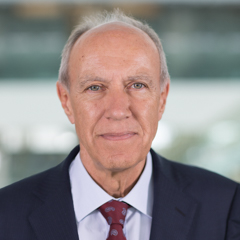

The thug in chief, Francis Gurry. Photo source: WIPO
THE latest WIPO scandal has been covered and debated in many Web sites by now. It's not a subject we follow closely (although we covered WIPO in the distant past), but we do occasionally mention it in daily links. At the core of the matter (or issue) there is lack of transparency, as it serves to hide abusive practices. But moreover, as this is a United Nations body at hand (i.e. no friend of the US), there's the issue of loyalty to North Korea, which the UN does not exclude. Servers and routers from the US were being sent to North Korea, so the House Foreign Affairs Committee mostly worries about this for political reasons, notably fear of countries that don't bend the US' way, both militarily and when it comes to so-called 'IP' policy (not just patents). Then there's a similar issue arising from cooperation with Iran. We put aside the political matters (Francis Gurry is from Australia, not the US) and deal mostly with the response to staff which expressed concern/dissent. WIPO had no whistleblower policy in place at the time, so Dr. Brown, for example, was operating based on gut feeling when she spoke to her boss, Gurry. Brown wrongly assumed that the US would protect her actions, but this was not the case. A lot of what happened inside WIPO is similar to what's happening at the EPO, where the crisis has some resemblance if not also connections to WIPO. We watched it live and made notes about the video. Here is the full (raw) broadcast:
Among the issues raised: gross human rights violations, attacks on unions, intolerance of whistleblowers, "theft of DNA" (whatever that means), infringement of property rights (or approaching without authorisation and then confiscating personal belongings), DNA-level or other Orwellian forms of surveillance, and (re)election of a head without any sane democratic process. WIPO resorted to threatening or demonising people using journalists too, all while threatening to "take down the article and issue an apology" when the reporters didn't suit WIPO's agenda (similar to what EPO had done to me). Pooley mentioned the person who had "committed suicide" like in the EPO, amid all the scandals and the vicious attack on those who spoke about it. For people who work at the EPO the above video might be of interest. It's only hours old. ⬆